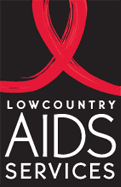
It is estimated that 1 in 5 people living with HIV doesn’t know they are infected. That’s why Lowcountry AIDS Services is participating in National HIV Testing Week USA June 20-27 with special free HIV testing events around the Lowcountry. This week leads up to National HIV Testing Day on June 27.
Lowcountry AIDS Services regularly offers free HIV testing 8:30 a.m. to 3:30 p.m. Monday through Thursday at its office in North Charleston. As part of National HIV Testing Week, it will offer additional testing events:
- June 20
10 a.m. to 2 p.m.
Mt. Moriah Baptist Church, 7396 Rivers Ave. - June 24
10 a.m. to 2 p.m.
Trident Technical College Main Campus, 7000 Rivers Ave., Rooms 212 and 214 - June 24
10 a.m. to 2 p.m.
Trident Technical College Palmer Campus, 66 Columbus St., Room 246 - June 27
10 a.m. to 2 p.m.
Walgreens, 1861 Remount Road
Tests are free of charge and no appointment is needed.
National HIV Testing Week USA is sponsored by the Urban Coalition for HIV/AIDS Prevention Services and co-sponsored by several national and regional organizations, including the Southern AIDS Coalition and Southern HIV/AIDS Strategy Initiative.
The overall goal is to make more people aware of their HIV status and reduce late diagnosis by communicating the benefits of HIV testing. The week’s theme is “Talk HIV. Test HIV. Treat HIV.” It’s about encouraging people to take control of their health and get tested. In particular those at a greater risk for HIV should get tested on a regular basis.
“Charleston County has been identified as having one of the fastest-growing HIV infections rates in the state,” said Brad Childs, executive director of Lowcountry AIDS Services. “Only through prevention, education and testing will we be able to stop the spread the HIV. Our agency makes a concerted effort through daily testing and special events to make it as easy as possible for people to take control of their health and get tested.”
Despite the fact medical advances mean people living with HIV and AIDS can manage their illness over a period of years, the number of new HIV infections has remained stable year after year. Southern states in particular have been hit hardest by HIV infections. Even though Southern states make up just 37 percent of the U.S. population, they represent 50 percent of new HIV infections.
Consider these facts from the Southern HIV/AIDS Strategy Initiative:
- More people diagnosed with HIV and living with HIV in the targeted states are black/African American, female and aged 13-24 than in any U.S. region.
- More than a quarter of persons diagnosed with and living with HIV in the targeted states region live outside of urban areas (population 500,000 or greater) – the highest of any U.S. region.
- As a region, the targeted states had a higher percentage of HIV transmissions attributed to heterosexual contact and a lower percentage due to injection drug use of any U.S. region.
- The targeted region has a higher percentage of both males and females living with HIV with heterosexual contact as the reported transmission category than any U.S. region.
To encourage others to get a HIV test, participants are invited to take a photo of themselves at the testing site and share it on social media with hashtag #GetTestedCHS.
